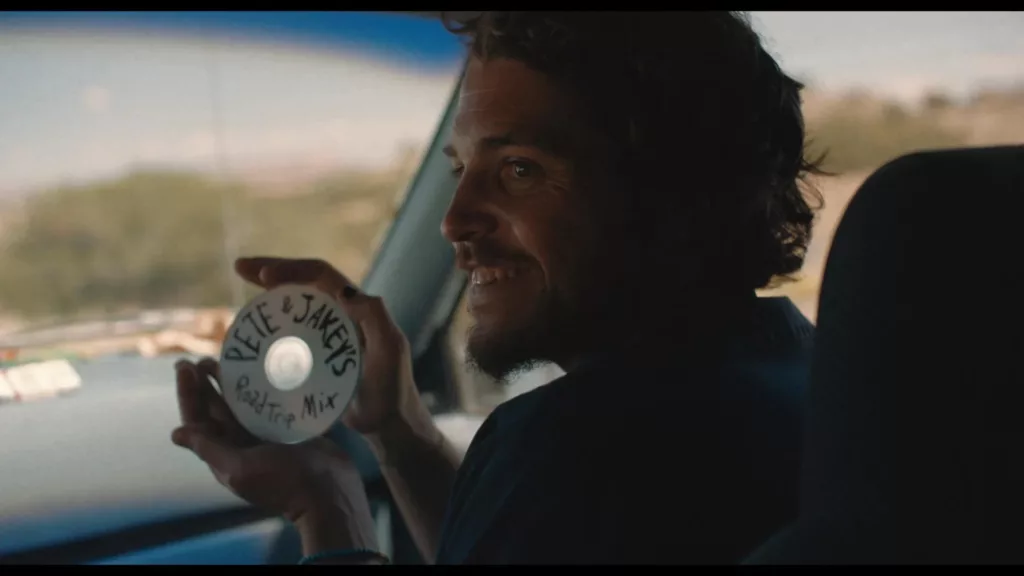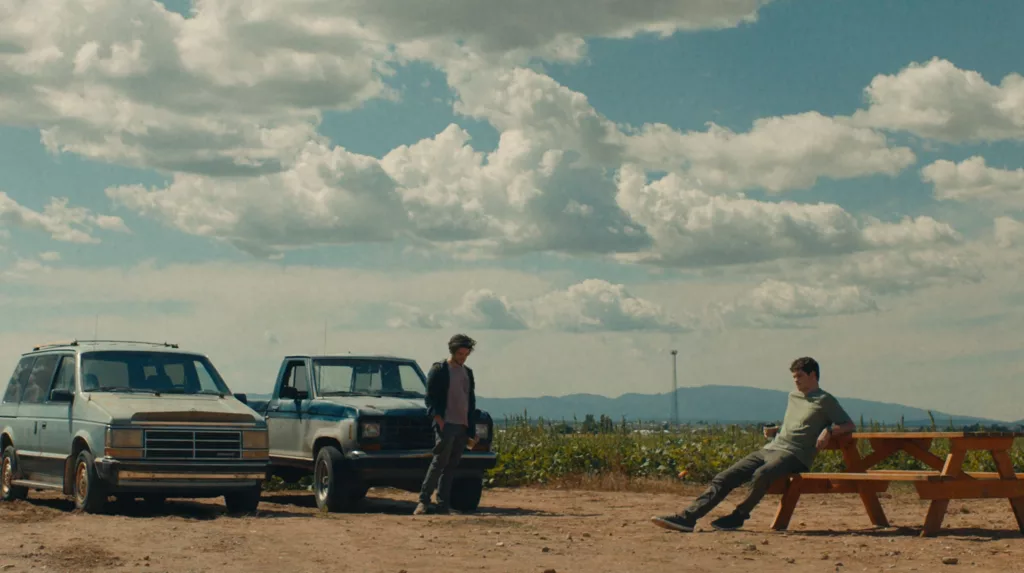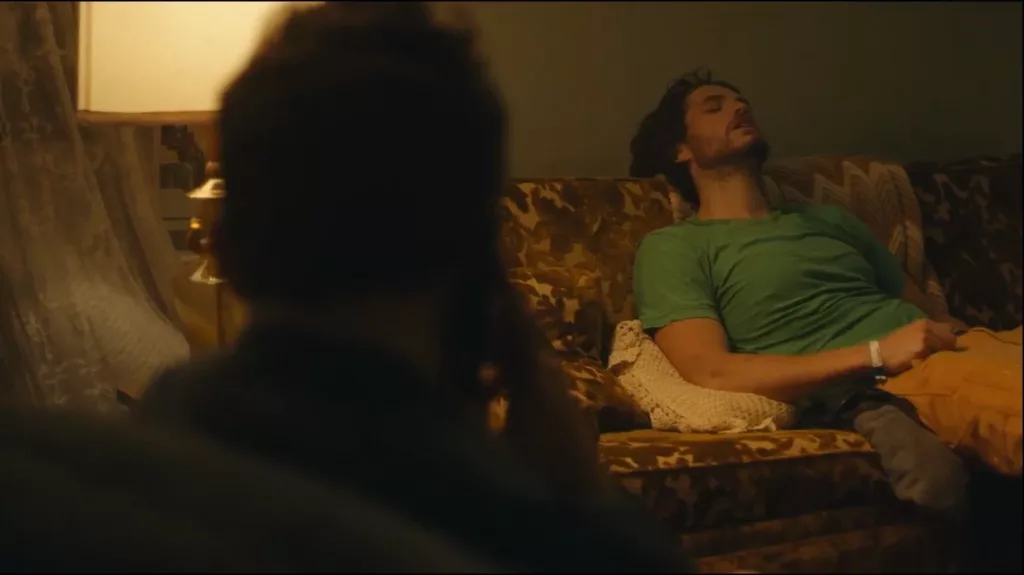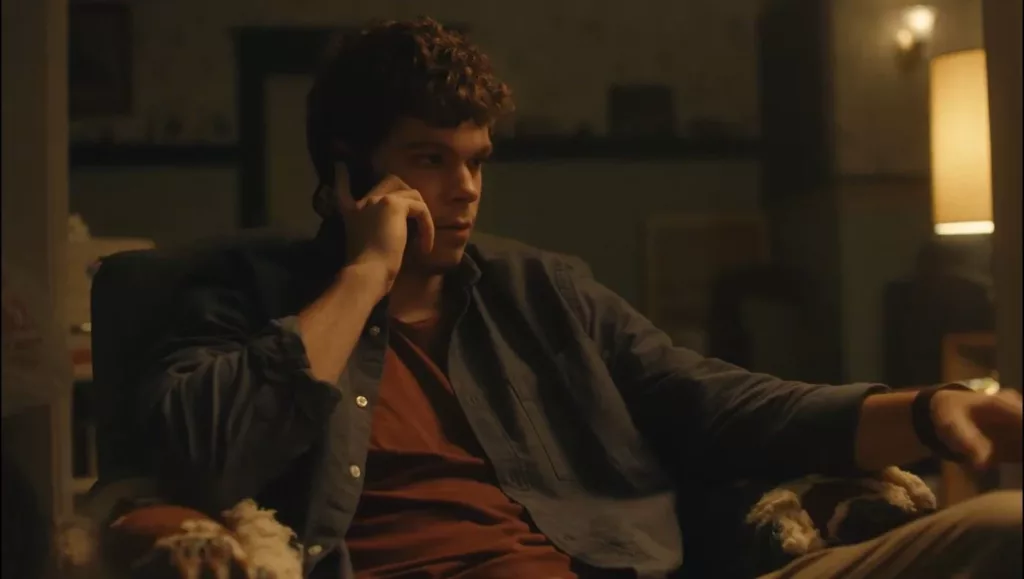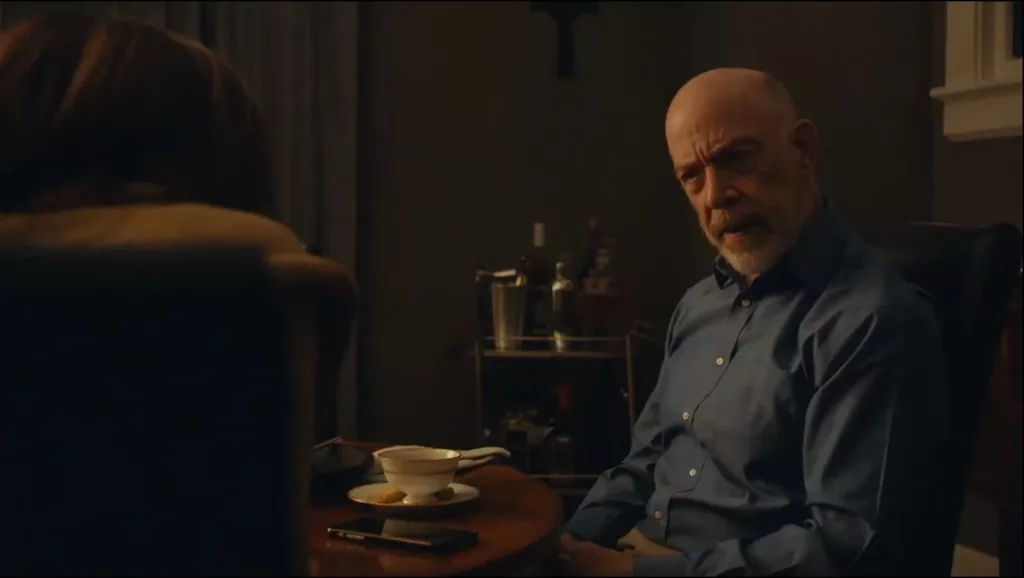Two brothers embark on a journey across the American West, hoping to heal deep wounds and forge a new bond. Older brother Pete has attempted to take his own life once more, leading to worried parents sending younger sibling Jake to drive Pete home. Hoping a change of scenery might help, their father believes Pete simply seeks attention. But underneath, real struggles tear at Pete’s soul.
Writer and director Sheridan O’Donnell draws from personal regret over a friend’s suicide for his debut film. He examines the turbulent path facing those with a loved one in such darkness. How do you care for them? Keep them safe? Help them see what they’d leave behind. This film offers no easy fixes, only earnest empathy.
Pete wrestles with mental health issues, struggling as many do today between burying emotions or openly facing fear. Jake wants to understand his once-looked-upon brother. Their father clings to outdated views, unable to see the depth of another’s pain. Across stark landscapes, their journey unearths heart, humor, and hard-won healing between two souls with everything yet to reconcile.
Through intimate family drama and the disconnect between generations, this film conveys profound truths of the present moment. It starts a conversation so necessary—on supporting those in crisis and creating a society where inner struggles meet compassion instead of stigma. Their road ahead remains long. But for now, two brothers begin the long walk towards each other once more.
The Brothers’ Journey
Jake struggles to comprehend the demons haunting his brother Pete, as different as their upbringings left them. Yet Jake fully commits to supporting Pete through this arduous time. His serious nature contrasts with Pete’s carefree guise, but deeper currents flow beneath each brother’s surface.
Jake grew up focused yet compassionate, trying to make sense of struggles forever foreign until now. Facing Pete’s pain awakens Jake to life’s fragility. Resolute in better understanding, he vows, walking each step with his brother, come what may.
Beneath lazy charms, Pete’s mental turmoil rages ever darker. Opening up to Jake, he finds solace in another’s presence amid private storms. Representing friends unable to utter inner cries, Pete shows invisible wounds leave no less scars. His raw honesty helps Jake see past masks into shared humanity underneath.
Their father brushes off Pete’s plight as weakness, the solution being separation. But times change while problems fester unspoken. Each generation faces demons as they’re taught, for better or worse. Where fathers cut ties, brothers cling to hope of healing through open hands and listening hearts, journeying as one.
In Pete and Jake, light and darkness entwine within our common struggles to truly see ourselves. Their story reveals fragile beauty when we make space in lives for others and, in them, find home.
Shining Light on Heavy Themes
Little Brother delves into difficult subjects with care. O’Donnell respects those trapped in mental anguish, shining light without sensationalism.
Pete’s inner struggles resonate as real issues plaguing many. Through him, we glimpse pain’s complexity—and how easily it silences voices. His openness helps dissolve stigma, countering isolation with understanding.
Generations experience life differently. Where fire once burned bright, its flame now dims for some. Traditions that shelter fathers leave sons adrift as new outlooks emerge. Jake and Pete bridge these realities, finding home in each other.
Families also feel changes’ winds. Reactions vary, from cutting off to determined support. Impacts ricochet through loved ones in poignant, unpredictable ways. This story honors diverse coping methods and families’ persevering compassion through turmoil.
By peering into personal shadows yet emphasizing our shared hopes, Little Brother starts conversations that heal. Its message: however darkness falls, light still exists—in standing by each other through life’s difficult questions and willingness to listen with open, non-judging hearts. Together, perhaps brighter days may come.
Mirroring Moments Through Filmmaking Flair
From opening frames, Little Brother’s pacing respects this story’s meditative pace. Scenes unfold with delicate care, immersing us fully in two brothers’ transitory journey. Space and time smooth away, leaving just raw experience.
Across rugged Western ranges the van carries its passengers, O’Donnell’s camera lingers on stark, sandy beauty. Devoid of crowds, lone cacti stand solitary watch over empty highways. In these lonely vistas, characters’ inward terrains slowly take shape.
A subtle score underlies all, gentle rise and fall mirroring emotional tides below dialogue. Melodies paint shades never stated, deepening the impact of every gaze and gesture. Joy and pain resonate through harmonies, which soothe without manipulation. Sorrow finds solace in musical marvels.
From measured rhythm to breathtaking backdrops, every technical element resonates the film’s soulful intentions. Art mirrors heart, transporting audiences to join Pete and Jake far from crowded multiplexes. Their internal journey becomes our own, fueled by cinematic mastery awakening empathy’s call across any distance.
Bringing Brothers to Life Onscreen
Pete and Jake feel utterly real through Diemer and Ettinger’s gifted work. Subtle flickers in their eyes or tense jaws beneath smiles convey depths within.
Diemer elegantly balances Jake’s care, confusion, and growing care for Pete. His earnest drive to comprehend melts cynicism in all witnessing their bond. Ettinger gifts Pete rich complexities—pain, persistence, and sardonic joys all deeply felt.
Together, an organic closeness emerges, relatable to any with siblings. Laughing one moment, jabbing the next, love surfacing unexpectedly. Their ease transports audiences onto an open highway, happily sharing two men’s intimate voyage.
Support saw Simmons embody obstinate traditions clinging to a fading world. Draper and Ohama lend compassion, playing relations and learning acceptance overrides easy answers.
Together, this cast breathes full souls into Sheridan’s profound script. Their nuanced performances resonate long after credits, empowering all who viewed them to transcend differences and embrace shared truths, uniting all families across any divide.
Touching Hearts and Sparking Conversation
Little Brother gently soothes wounded souls, affirming none walk alone in private pain. For those scarred by loss or caring for those in crisis, this film resonates healing.
O’Donnell’s story kindles discourse on matters too long left in shadow. By showing mental health’s complexity compassionately, it counters isolation with shared understanding. Viewers leave empowered to support friends navigating darkness.
Deeper still, it explores tensions shaping our volatile age. Where hope once burned bright for youth, disillusionment’s flames now dim. As traditions falter, new directions emerge, though problems linger whether voiced or not.
Connecting through what lies beneath today’s headlines, the film pinpoints a moment’s essence. Generations differ as worlds change at an uneven pace. Yet through intimacy and open hands, a way forward takes shape—not by way of tears alone, but shared joy and mutual care.
In stirring empathetic thought, Little Brother spreads light where it’s needed most. Though storms may rage and questions remain, its message endures: however dark the night, together we can face whatever dawn may bring.
Finding Light Together
Little Brother walks a long road, bearing heavier topics than most with care, honesty, and heart. O’Donnell offers no fast fixes, simply dignifying private struggles too many still face alone.
Through intimate brotherly drama, it breathes soul into profound truths transcending headlines. Generations vary in their lived truths, and problems linger whether voiced or not. Yet this film’s message endures—that together, through open ears and helping hands, we can make even the heaviest burdens lighter to carry.
Pete and Jake’s journey reminds us that however darkness falls, light remains possible when we make space in our lives for others’ suffering as our own. Their story resonates with all seeking to understand tangled threads within ourselves and lives entwined with ours. And reassures that even on streets winding longest, two sets of footprints are still one better than traveling solo.
For those moved to keep pushing ahead, and all wishing to stand beside them, Little Brother offers solace. And inspires us to face what each new day may carry hands joined, as brothers.
The Review
Little Brother
In tenderly humanizing mental health struggles and familial bonds tested thereby, Little Brother quietly moves the soul. Through intimacy and empathy, Sheridan O'Donnell's debut feature finds poetry in private pains too easily avoided or ignored, amplifying our shared capacity for compassion.
PROS
- Nuanced and authentic portrayal of mental health issues
- Heartfelt and moving exploration of family dynamics
- Stunning Western cinematography
- Subtle yet emotionally powerful performances
- Empowers discussion on important social issues
CONS
- Some may find certain plots emotionally heavy
- The ending could feel ambiguous for some viewers
- Characters may not appeal to all audiences









































